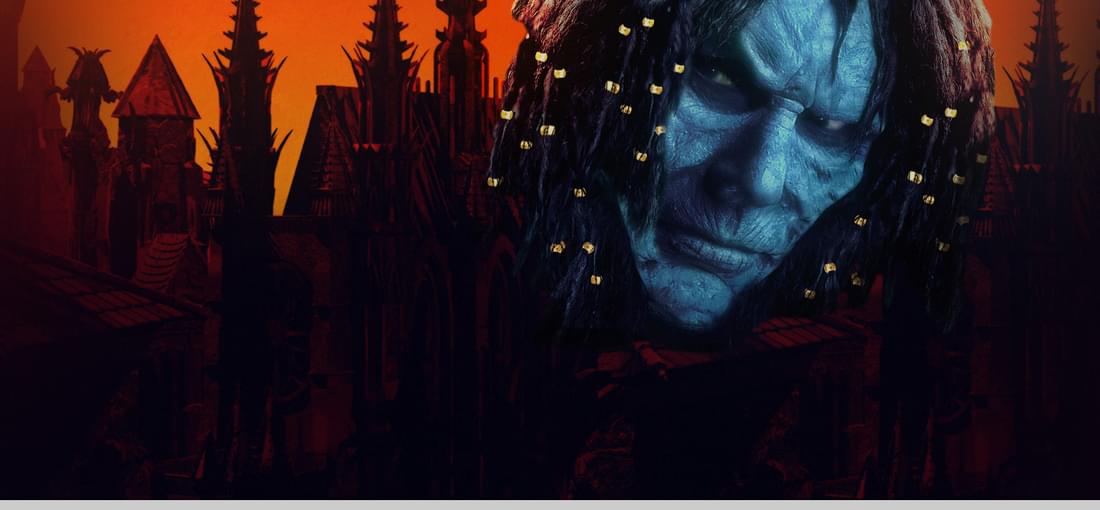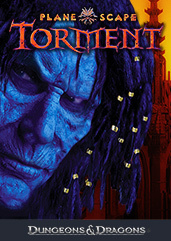



Planescape: Torment is in some ways a departure from traditional western RPG design. The main character's weapons are clubs, daggers, and fists, with nary a sword or bow or magical staff in sight. Rats are some of the most dangerous enemies in the game. Combat is so de-emphasized in parts of its 40+ hour campaign that it's been called more an Adventure game than a RPG. And death is no obstacle, and in fact dying is crucial to advancing the plot and solving certain puzzles. But what this means is that this is a D&D RPG whose unconventionality meshes perfectly with the uniquely strange aesthetic of its setting and its story, with every departure from the tone of Baldur's Gate evidence that we're not on The Sword Coast anymore, Toto. Planescape: Torment opens with perhaps the most cliched narrative beginning in existence. Your Nameless character awakens on a slab in the city morgue with no memory of who he is or how he got there. However, what many games use solely quick and easy excuse for barraging the character (and the player) with tutorials and exposition goes past that role and expands to become a central conceit of the plot, a tool that allows the game and you as the player to meditate on the nature of identity, responsibility for past actions, and questions of redemption and destiny. I don't want to say too much more about PS:T's plot. Most people purchasing the game here probably know it already, but just in case I'll restrict myself to the points above, summed up in the game's resonating and lasting question: "What Can Change The Nature Of A Man?". This is explored through your party members, a diverse cast that includes a disembodied skull, a chaste and pure succubus, a Githzerai with a crisis of will, and a mage whose permanent submersion in all-consuming fire has not damped his lust and love of all things that burn. Mechanically, the game is somewhat stiff by 2010's standards but still quite functional. The interface is intuitive and easy to learn, and if the 2nd Edition AD&D ruleset that drives the game's combat is somewhat less intuitive it is still entirely accessible to the player. The game's soundscapes and visuals are still stunning, hauntingly ambient and brooding music played over the hand-drawn backgrounds that make most Infinity Engine games such a pleasure to explore. The City of Sigil forms the focus for most of the campaign, and it's cross of Victorian London, Fritz Leiber's Lankhmar, and the involuted architecture of Hieronymous Bosch ensures that there's always something to see, while the wealth of extremely rewarding side-quests ensures that even if you're not the "gotta map it all" type of player it's well worth poking your nose into nooks and crannies of the game world. In short, Planescape: Torment is a triumph, a game that transcends its origins in traditional fantasy role-playing in order to bring to life D&D's most unique setting and to use that setting as the canvas with which to paint one of the greatest questions in gaming history: "What Can Change The Nature Of A Man?" Buy the game, and maybe, just maybe, you'll find out.